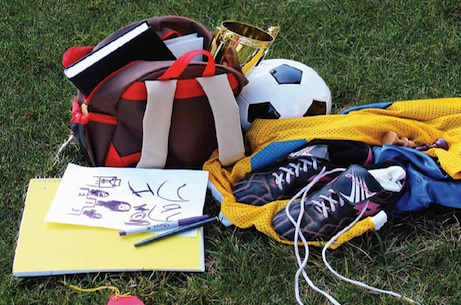
Hilary Levey Friedman's new book is on raising children in a competitive culture.
A book by Gates Cambridge alumna Hilary Levey Friedman on the pressure on young American children to do competitive afterschool activities is already getting major press attention although it is not due out until September.
Playing to Win: Raising Children in a Competitive Culture follows the path of primary school-age children involved in competitive dance, football, and scholastic chess.
It asks why American children participate in so many adult-run activities outside of the home, especially when family time is so scarce. Hilary [2002], who did an MPhil in Modern Society and Global Transitions, analyses the roots of these competitive afterschool activities and their impact. It suggests these activities have become “proving grounds for success in the tournament of life – especially when it comes to coveted admission to elite universities, and beyond”.
The book paints the context that leads to the rise of so-called Tiger Moms. It introduces concepts like competitive kid capital and pink warrior girls and details how American children learn how to play to win.
It has won plaudits from child experts, including Valerie Ramey, Professor and Chair of Economics, University of California, San Diego who said: “Hilary Levey Friedman has managed to convince numerous upper middle class parents and their children to pause from their mad dash between extra-curricular activities to explain why they have chosen this lifestyle. Using information from detailed interviews across a variety of activities, she provides a revealing account of the motivations that lie behind the dramatic rise in competitive children’s activities. This fascinating book forms a key part of an emerging body of research that links the increase in time devoted to childcare to parents’ worries about their children’s economic futures.”
The book is released on September 1st.
For more information, click here.












